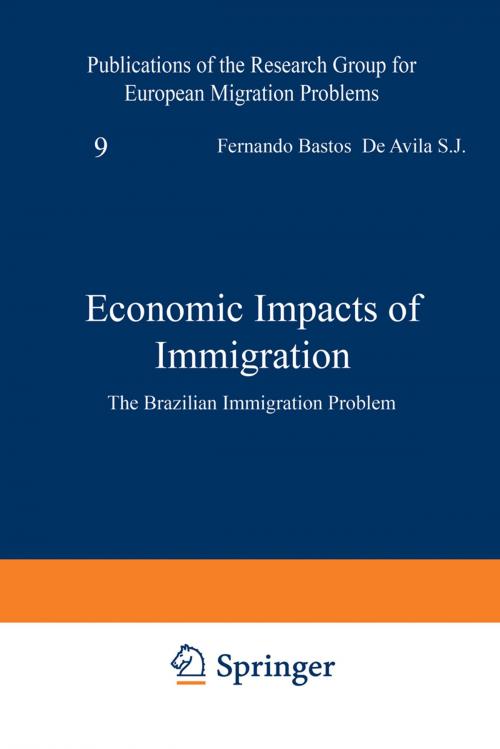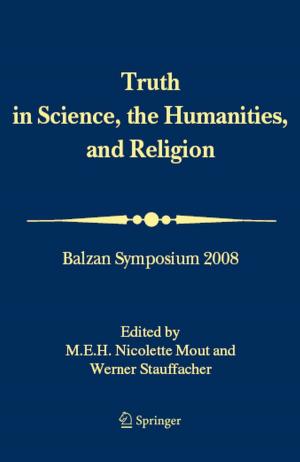| Author: | F. Bastos de Avila, A.C. de Oliviera, J. Isaac | ISBN: | 9789401179669 |
| Publisher: | Springer Netherlands | Publication: | December 6, 2012 |
| Imprint: | Springer | Language: | English |
| Author: | F. Bastos de Avila, A.C. de Oliviera, J. Isaac |
| ISBN: | 9789401179669 |
| Publisher: | Springer Netherlands |
| Publication: | December 6, 2012 |
| Imprint: | Springer |
| Language: | English |
It amounts to a truism to say that amongst the great problems left by the Second Great War very few called for national and international planning so urgently as the problem of human migrations. During and after the conflicts a mass displacement of population was brought to bear heavily on the demographic situation of Western Europe. On the other hand, in the turmoil of the aftermath some western countries came to lose, one by one, their African and Asiatic colonies, and were in consequence deprived of an outlet for their surplus population. The economic implications of the problem were tremendous. Where to find a remedy to such a tragic situation? I would not venture to say that large scale migrations are like ly to bring about, all by themselves, a harmonious distribution ~f population. It must be recognized, nevertheless, that economists and geographers alike are ready to admit that this problem, and the problem of economic pressure which derives therefrom, cannot be satisfactorily settled unless a well devised policy of regulation is set up, in order to bring all manpower available closer to the natural resources of wealth. It follows that in the present days the migration policy of any given country has to be considered in the light of international co-operation. This planetary vision of all great human problems is a welcome sign of our times.
It amounts to a truism to say that amongst the great problems left by the Second Great War very few called for national and international planning so urgently as the problem of human migrations. During and after the conflicts a mass displacement of population was brought to bear heavily on the demographic situation of Western Europe. On the other hand, in the turmoil of the aftermath some western countries came to lose, one by one, their African and Asiatic colonies, and were in consequence deprived of an outlet for their surplus population. The economic implications of the problem were tremendous. Where to find a remedy to such a tragic situation? I would not venture to say that large scale migrations are like ly to bring about, all by themselves, a harmonious distribution ~f population. It must be recognized, nevertheless, that economists and geographers alike are ready to admit that this problem, and the problem of economic pressure which derives therefrom, cannot be satisfactorily settled unless a well devised policy of regulation is set up, in order to bring all manpower available closer to the natural resources of wealth. It follows that in the present days the migration policy of any given country has to be considered in the light of international co-operation. This planetary vision of all great human problems is a welcome sign of our times.















